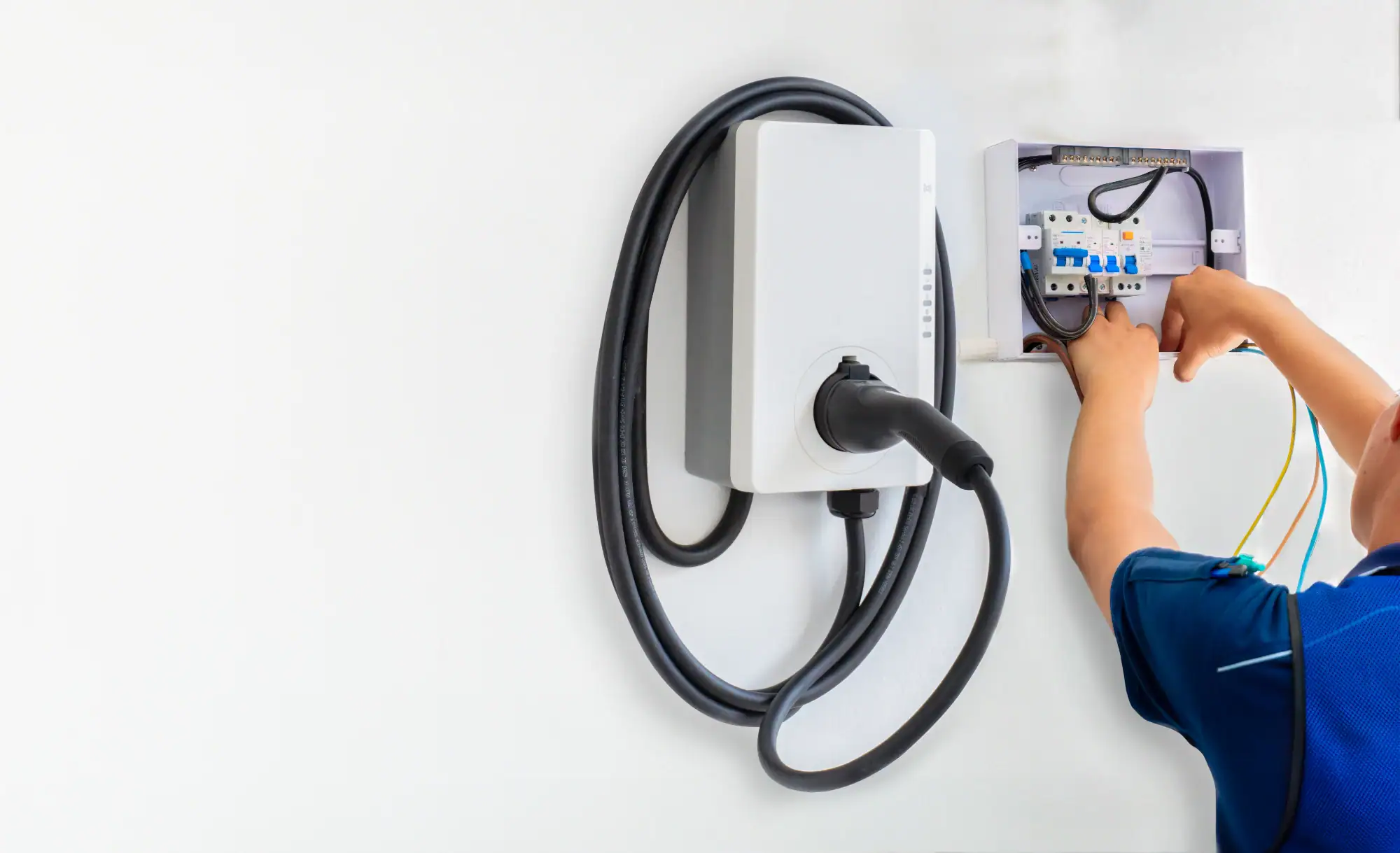Licensed electricians who handle the permits, upgrades, and installation so you can charge at home without the headaches.
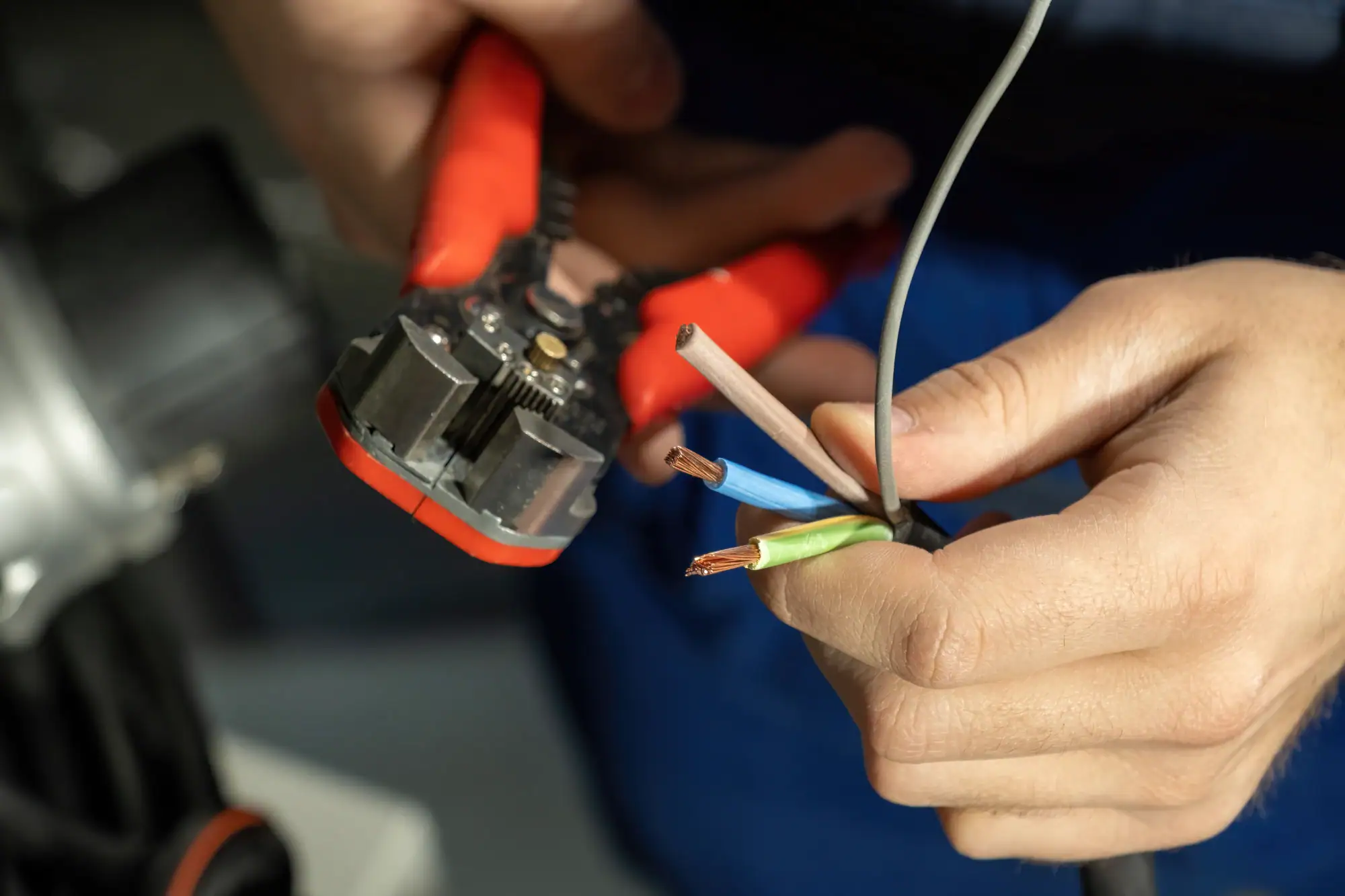
Hear from Our Customers
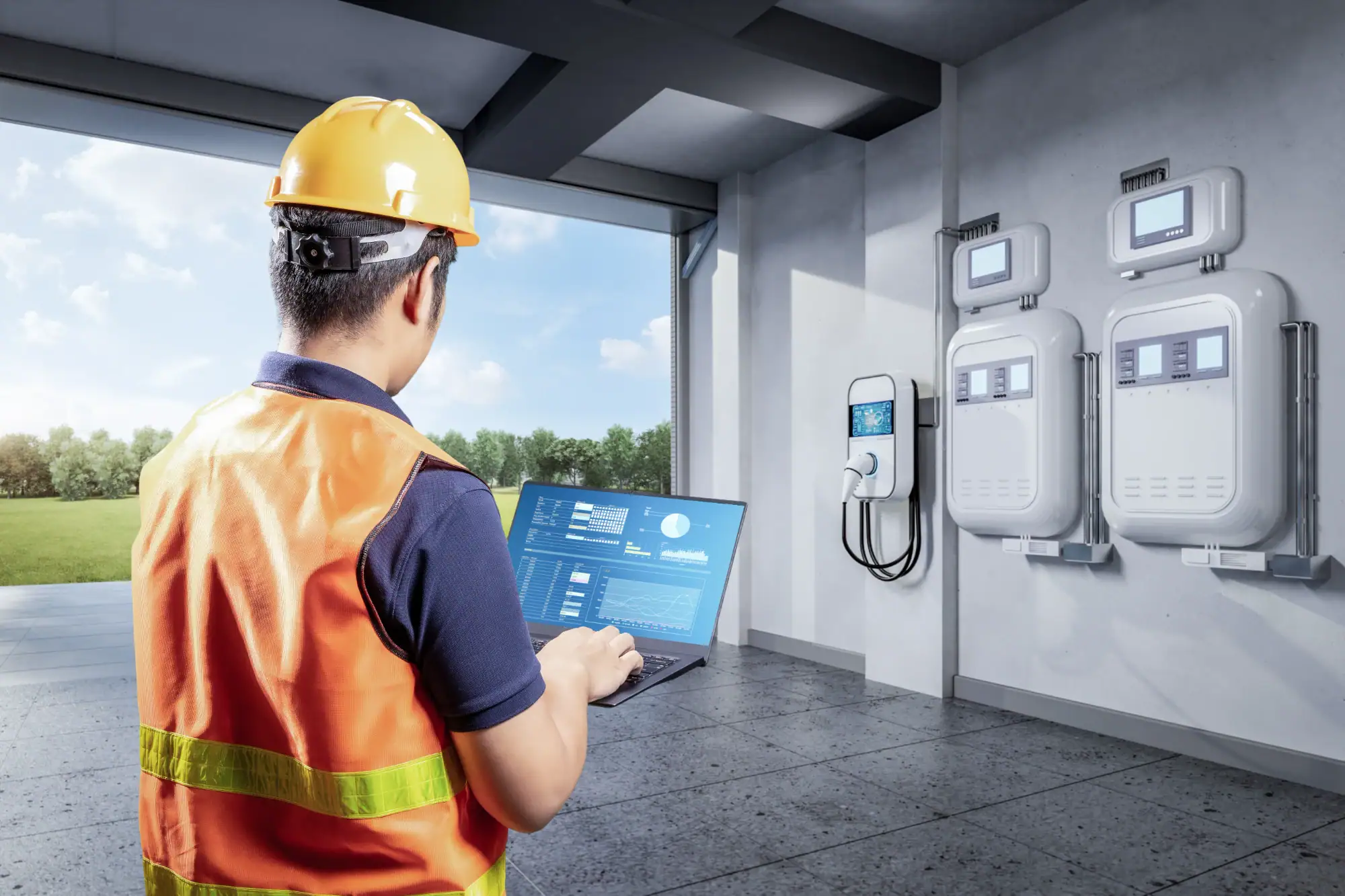
You’ll wake up to a fully charged vehicle every morning. No more hunting for public charging stations or waiting in line. No more range anxiety on your daily commute.
Your Level 2 charger adds up to 25 miles of range per hour. That means a full overnight charge for most electric vehicles. You plug in when you get home, and you’re ready for tomorrow.
The installation is handled properly from day one. We pull the permits, upgrade your electrical panel if needed, and make sure everything meets code. You get reliable charging that works when you need it.
We’ve been solving electrical problems in University Park and surrounding areas for 25 years. We’re licensed, bonded, and insured electricians who specialize in residential electrical work.
We handle everything from emergency electrical repairs to major upgrades like EV charger installations. Our focus is getting the job done right the first time, with proper permits and code compliance.
University Park is one of only 16 communities committed to becoming EV Ready, and we’re here to help homeowners make that transition. We understand the local requirements and work with the permits process so you don’t have to.
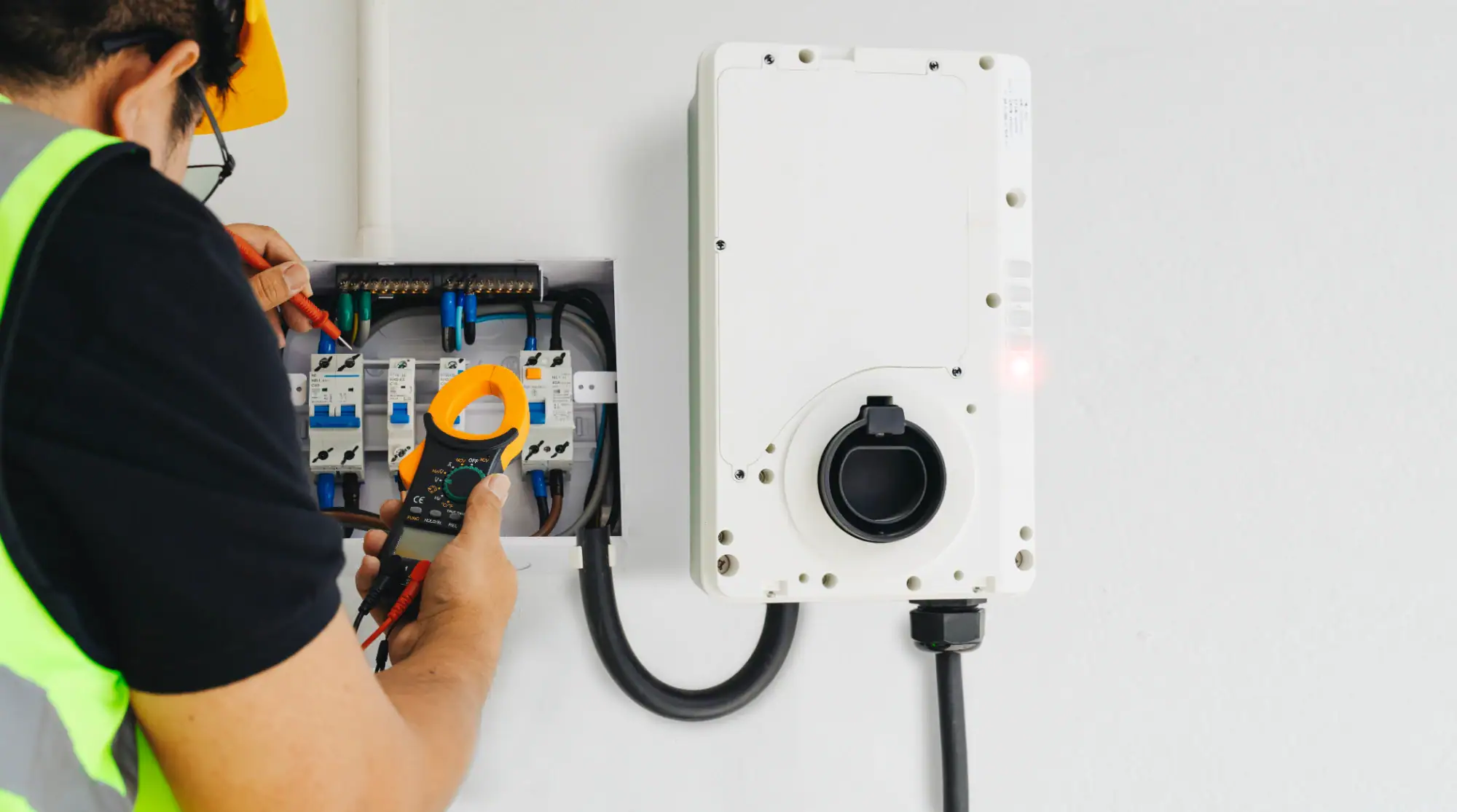
First, we assess your electrical panel and determine what’s needed for your EV charger installation. Most homes need a dedicated 240-volt circuit, and some require panel upgrades to handle the additional load.
Next, we pull all necessary permits and schedule the work around your availability. We install the proper wiring, mount your charging station, and connect everything to your electrical panel with commercial-grade components designed for daily use.
Finally, we test the system and walk you through how everything works. The city inspector comes out to approve the work, and you’re ready to start charging. Most installations take 4-6 hours depending on the complexity.
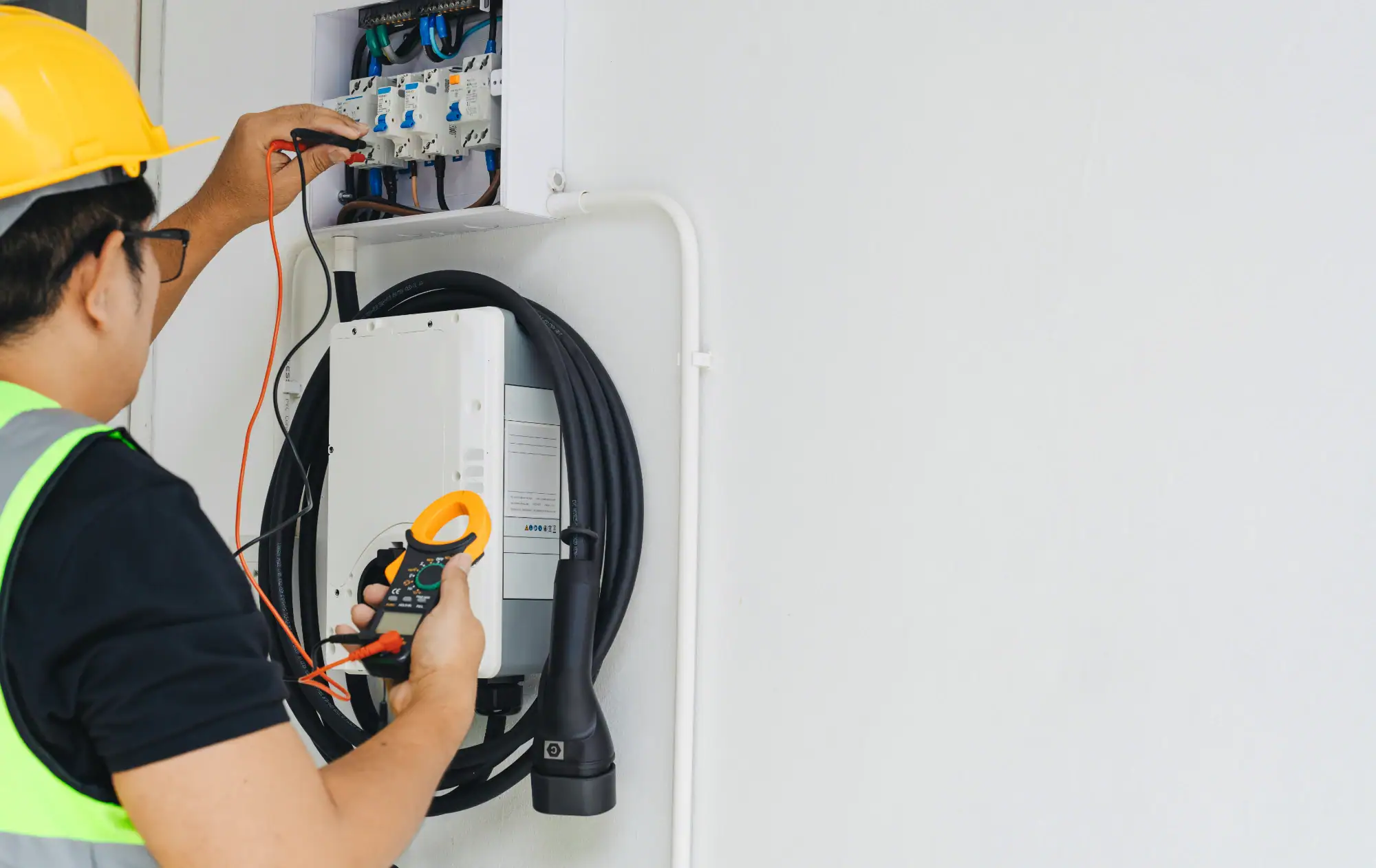
Ready to get started?
Your installation includes the dedicated 240-volt circuit, proper conduit and wiring, GFCI protection, and mounting of your charging station. We use commercial-grade outlets rated for continuous high-load use, not standard household outlets.
If your electrical panel needs upgrading, we handle that too. Many University Park homes have older 100-amp panels that need upgrading to 200 amps to safely handle EV charging plus your home’s existing electrical needs.
We also coordinate with ComEd’s rebate program, which offers up to $3,750 for qualifying installations. Illinois residents can save significantly on both the EV purchase and charging installation with current incentive programs.
